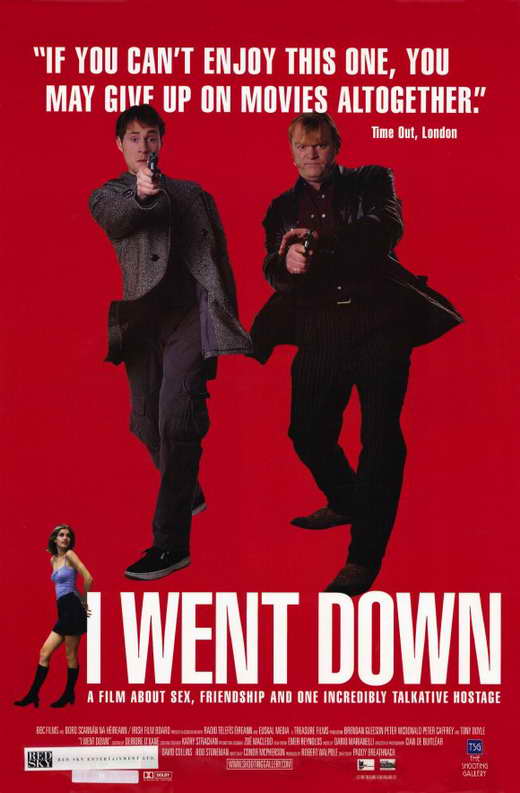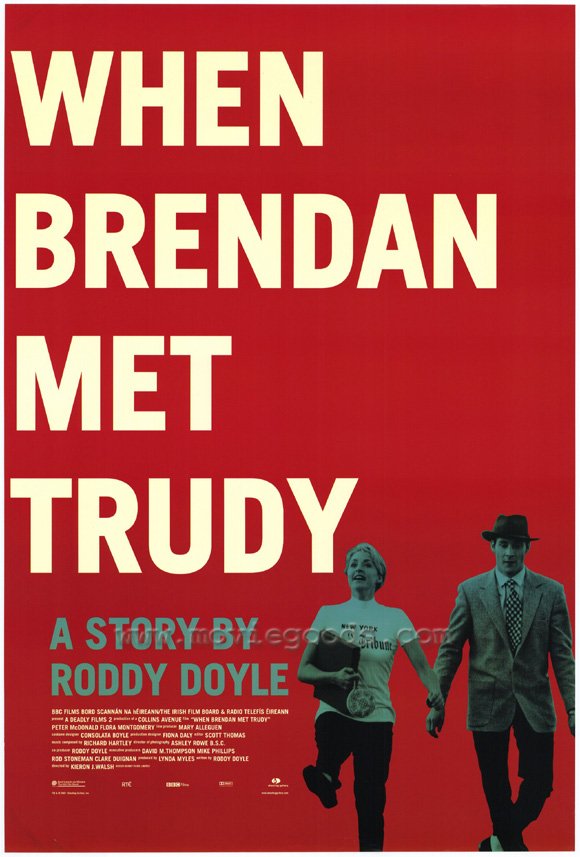
The Stag has been getting
a lot of attention in the Irish press because it seems to be one of the most
patriotic Irish films made in recent years. This is an Irish film that is not
about the Troubles, is not sombre about Ireland’s past or particularly worried
about the Ireland’s current problems – failing banks and Church scandals. The
characters are the kind of characters that would appear in a Woody Allen film
if he ever included Dublin as part of his European tour. But does that make it
any good?
Fionnan (Hugh O’Conor - the kid from Lamb) is getting
married to Ruth (Amy Huberman) and is getting seriously involved with the
wedding planning. Ruth thinks that he needs a break and that the wedding
planner needs some peace, so she enlists Fionnan’s best friend Davin (Andrew Scott)
to convince Fionnan to go away on a stag. He succeeds, and their friends Simon
(Brian Gleeson) and the Kevins (Michael Legge and Andrew Bennett) agree to come
as well. However, Ruth insists that they invite her brother The Machine (Peter
MacDonald), despite the fact that everyone thinks he is a total eejit. They are
desperate to avoid him but are ultimately forced to take him along. Comedic
reversals and complications ensue.
The Stag is gleefully
conventional and it feels very much like a Hollywood film. The six men each
have their problems – all of which are resolved by the end of the film with a
little help from their friends – but the film is far too optimistic to get
bogged down with these. The overall impression of The Stag is of a film
that is trying to brighten what can often be a rather dark national cinema and
an even darker national psyche. The majority of the film is concerned with The
Machine’s unorthodox attempts to help these five men learn to love life (and
being Irish) again, learning some of his own lessons in the process. His
success and his speech at the big wedding that finishes the film suggesting
that we should forget about the banks and the Church and revel in being Irish
and having a good time, have allowed suggestions that The Stag is that
rarest of Irish films, a patriotic film. This, sadly, is unconvincing, since
the wedding is so tacky, so cheesy that it can only be dismissed, an awkward
attempt at heartfelt grand statements that fails to chime with the rest of the
film. It is all too clear that, while they may have fun at this wedding,
tomorrow they will be back worrying about their troubled love lives and serious
financial debt. It is also a bit of a cheat, especially the fact that the
lonely and heartbroken Davin manages to get a plus one for the wedding but we
are never told who she is and the camera awkwardly avoids giving her a
close-up. Meanwhile the issue of Fionnan’s dad’s (John Kavanagh) homophobia and
his refusal to accept the two Kevins – one of whom is his son – is cleared up
much too easily.
However, although the film’s
message is unconvincing, it is pleasingly entertaining and pleasantly honest in
its emotions – at least until the wedding scenes. There is a great moment,
surprising in its length, in which Davin tearfully sings Patrick Kavanagh’s
poem “On Raglan Road”, the lyrics clearly meaning a lot to him. Director John
Butler holds the camera on him, on a close-up, only rarely and briefly cutting
away, and allows the poem – sung almost in its entirety – and Scott’s
performance to speak for themselves. It is a surprisingly artistic moment in a
film that would have otherwise not been too far away from an irritating Apatow
film. In other words, despite the obvious clichés and the tacky, unconvincing
sentimentality of the film’s final moments, the film is actually refreshingly
heartfelt.
As for the comedy, the film is
knowingly contrived in the kind of way that would seem lazy if you weren’t
prepared to just go with it. It isn’t particularly funny, though there are a few
laughs. It is likable as light entertainment – being more fun than funny – and
it has a pleasing lightness of touch, that gestures towards serious problems in
a way that marks them out for seriousness without allowing them to overwhelm
what is essentially a happy film about overcoming failure and resolving one’s
confused take on modern masculinity. As poor as the wedding scenes are, by the
time we reach them the film has built a certain degree of good will, so that
what would be awful in a lesser film is merely awkward here.
The Stag is
surprisingly likable with good performances that make up for a somewhat lazy
script. It is nice to see an Irish film being optimistic for once, even if the
film’s final moments would suggest that such hopefulness requires you to live
in an extreme state of denial. And while this kind of light entertainment will
most likely never attain the heights of the best Irish films, all of which is
much darker (see Rocky Road to Dublin, In The Name of the Father,
Garage, In Bruges and What Richard Did), it is nice to see
Irish cinema being cheery and proud to be Irish for once.
See also:

